As an Amazon Associate I earn from qualifying purchases.
When life gives you gizzards, you need to learn how to clean gizzards. Amiright? Yeah, yeah, I can hear you thinking: “Ew, why would I eat that?”
Because they’re good. One of the more unloved giblets, gizzards are both an internal organ and dense nuggets of deep burgundy meat. That’s right, I said meat. A gizzard is made of muscle, just like the breast or thigh meat. You just have to get to it first.
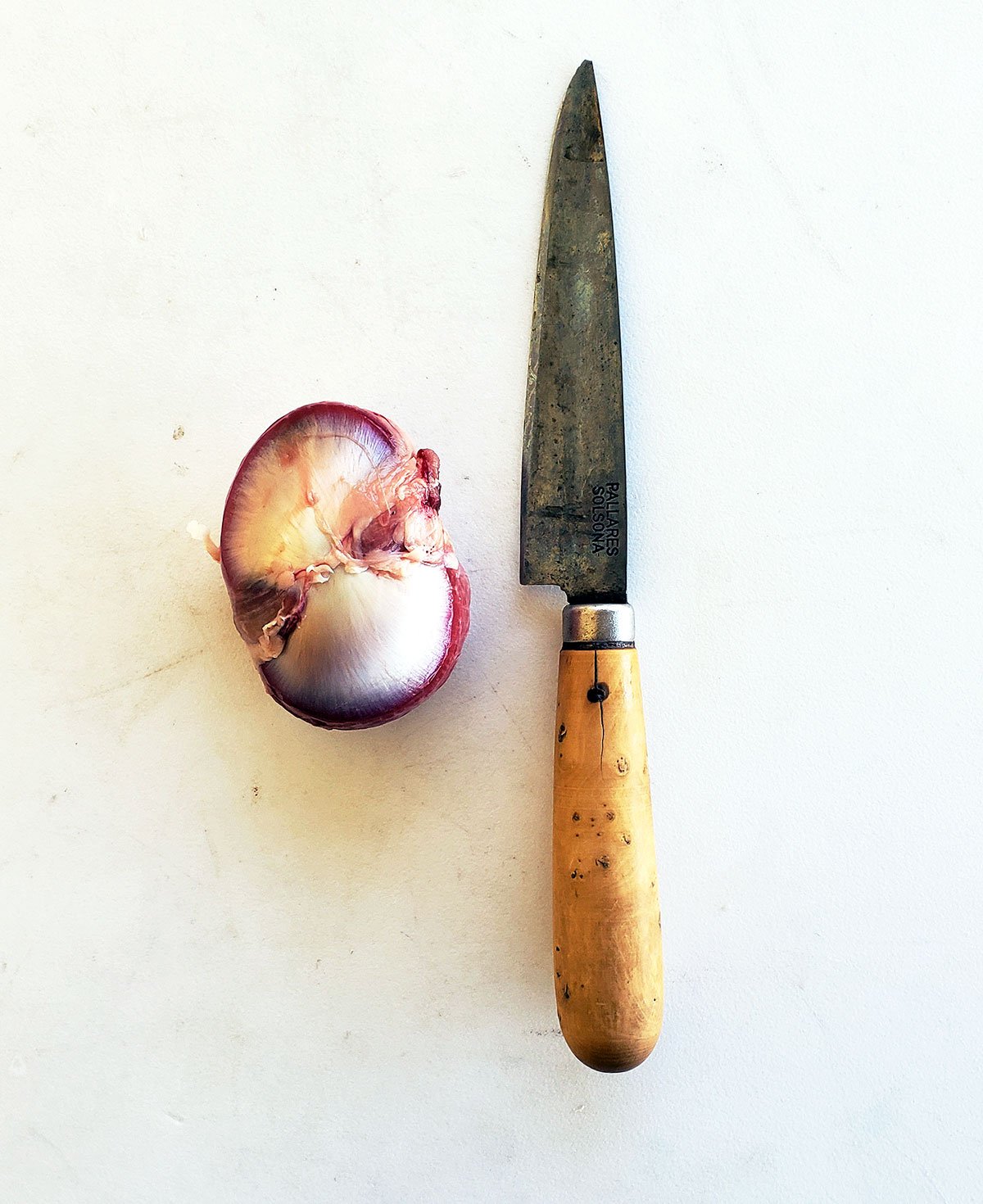
Most gizzards are sold partially cleaned — you normally only need to remove the silverskin membrane on either side of the meat nugget before you put them in the pot or fry them up. But what if you get a whole gizzard? It happens a lot in Asian markets, where they sell them just as they come out of the bird. And of course hunters get whole gizzards with every bird we bring home.
Cleaning gizzards is a necessary skill both for hunters and for those interested in nose-to-tail eating. So here’s how to clean gizzards.
It’s stupid easy. So easy, I need to tell you a quick story first. Years ago, when I was writing my cookbook Duck, Duck, Goose, I included instructions on how to clean duck gizzards. These instructions had you split the gizzard, carefully clean out all the grit, and then slice the grinder plates away.
When I toured to promote this book, I did some cooking demonstrations. At one, I was cleaning gizzards. A woman from Arkansas piped up. “I don’t mean to be rude, but…” No, go ahead, I said. “Well… that’s a stupid way to clean gizzards.” She was embarrassed to call me out, but I was all ears. Only idiots are set in their ways.
So she stood up, took a gizzard, and with two quick slices, had it cleaned. Dayum! Well, hell, I said, that’s much better!
And so here you go.
Take a small sharp knife and slice the two lobes of meat off the grinder plate. The only things you need so remember are that one lobe is almost always larger than the other, and that they arc over the grinder plate, so you slice not straight down, but in an arcing motion to get the most meat.
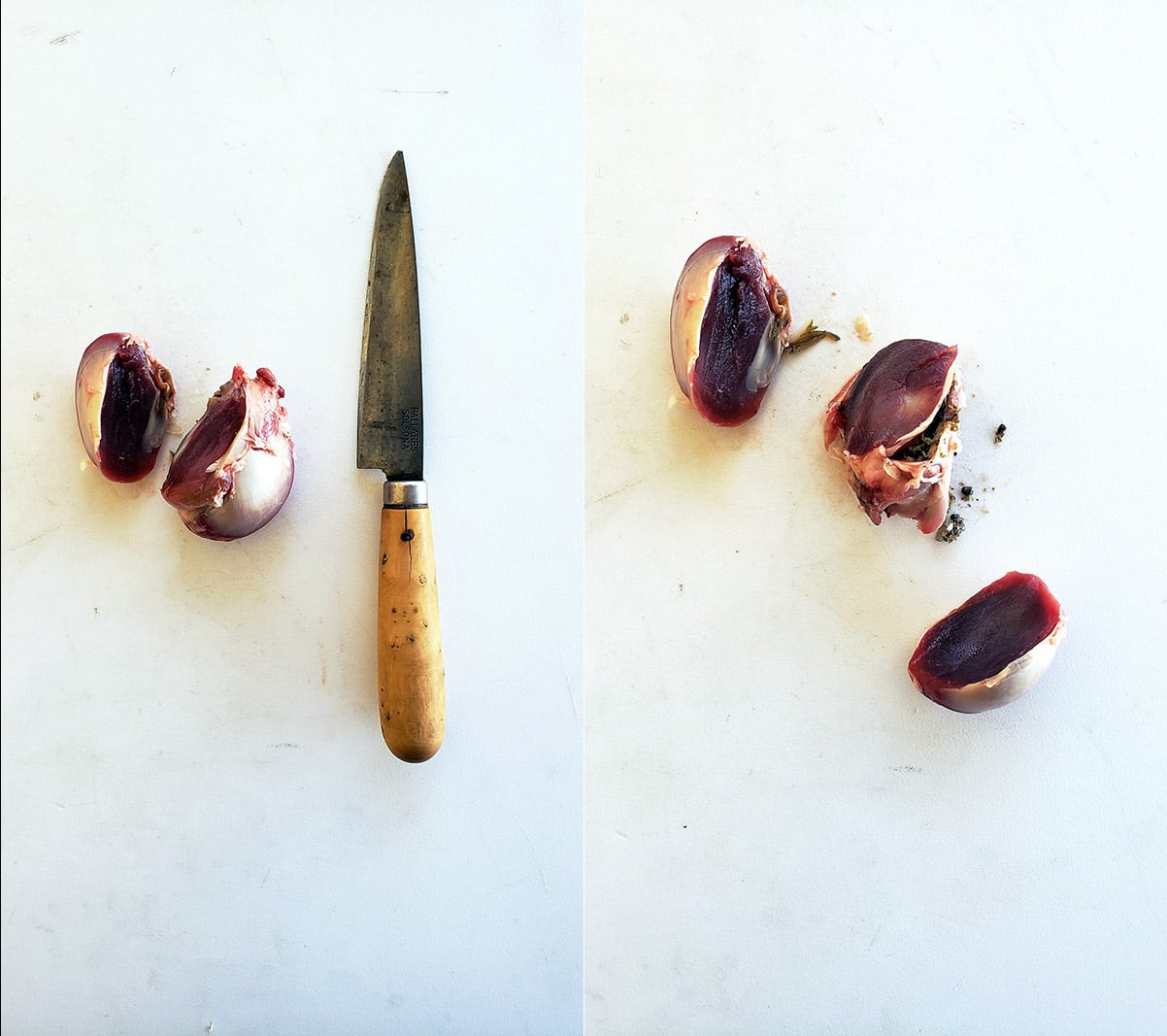
There. That’s how to clean gizzards.
What about the silverskin? Well, you don’t really need to care about it if you are cooking them all day in a crockpot, which is what I mostly do. The silverskin melts away and you don’t notice it after many hours of slow cooking.
That said, fried gizzards are a thing, and I’ve even made gizzard carpaccio, which was weird, but very good. In that case, you need to remove the silverskin. This is easy. Use the tip of the knife to dislodge where it attaches at the outer end of the lobe — farthest away from where you sliced it off the grinder plate — then use the edge of the knife to scrape it straight down to the base.
Then, a quick slice and it’s out of your life.
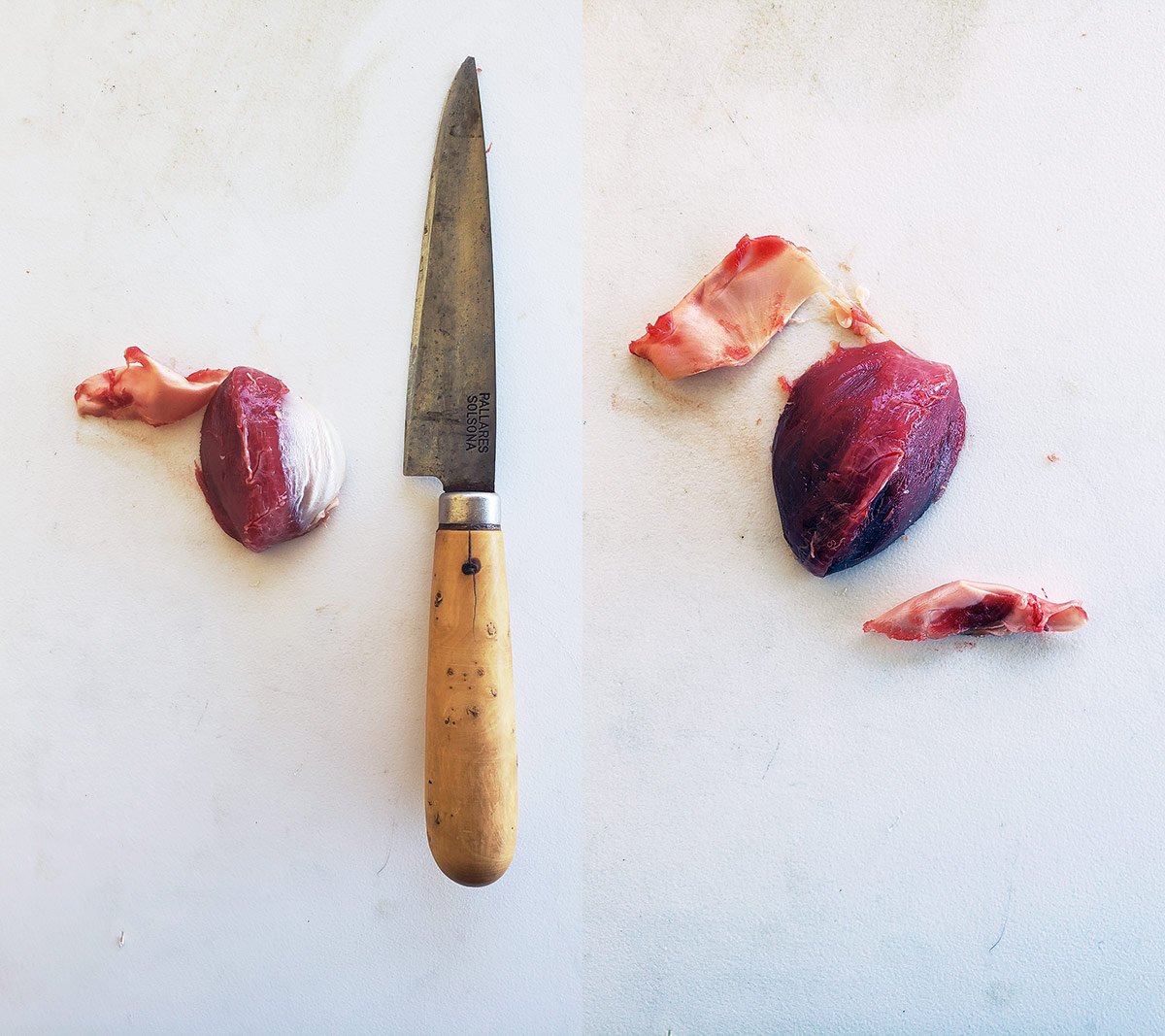
Super easy. Pro tip: Wait to remove silverskin on gizzards until you are ready to cook. It comes off way easier from a thawed gizzard than a fresh one.
Now that you know how to clean gizzards, what do you do with them? Hands down the best way to cook gizzards is to slow cook them. I prefer to cure them exactly like my corned venison, then cook them in homemade duck stock (or any stock, really), in a slow cooker for… wait for it… 24 hours.
Why this long? Because then you can squash the gizzards with a fork. And they taste almost exactly like corned beef. Seriously. Here is how I love to make corned gizzards. Follow the technique in that recipe and you can modify the ingredients to suit your taste.
Different gizzards cook differently. Mostly I work with duck and pheasant gizzards, and can accumulate lots of them, vac sealed in the freezer, for meals. Goose gizzards, as well as turkey gizzards, can be huge.
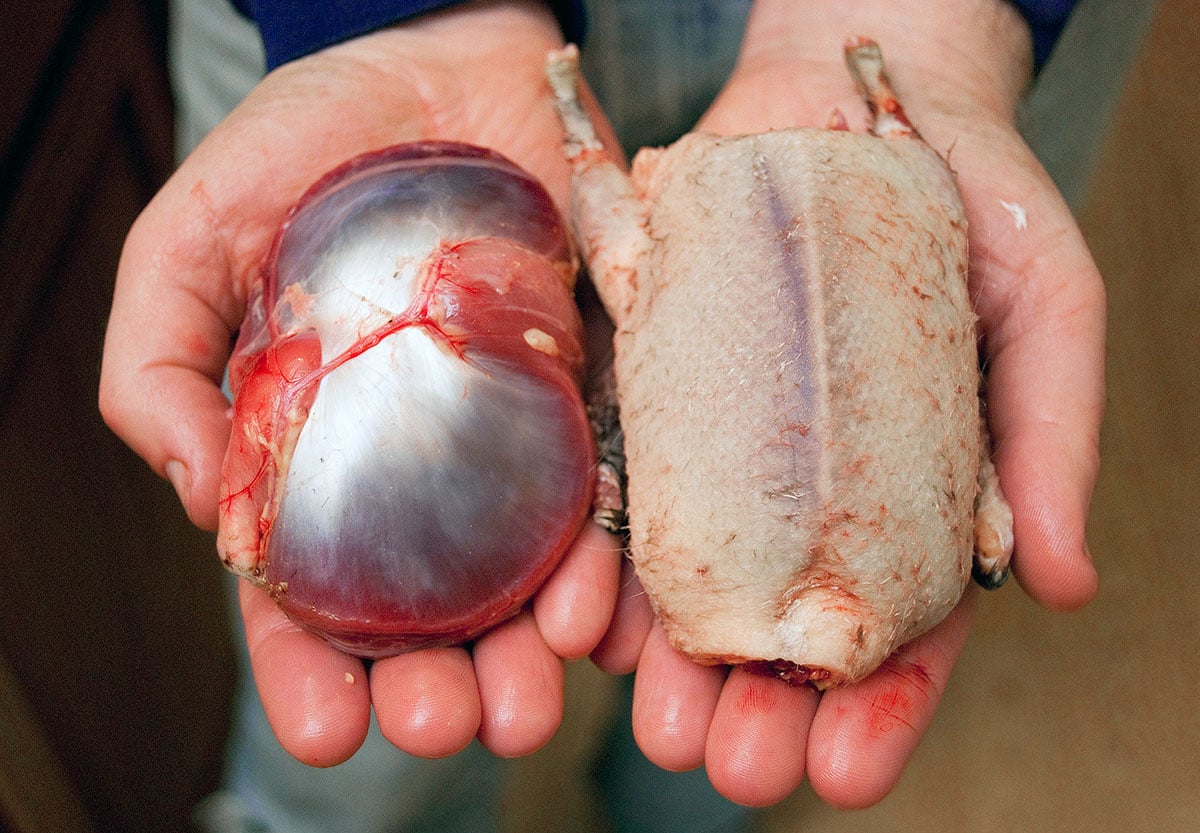
See that? That’s a snow goose gizzard next to an entire hen teal. Crazy, eh?
You can certainly corn or confit these the way you would smaller gizzards, but I often grind them. It’s a lot of good, healthy meat to add to a grind pile for whatever you want to make, from picadillo to meatballs to my all time favorite: Giblet bolognese sauce.
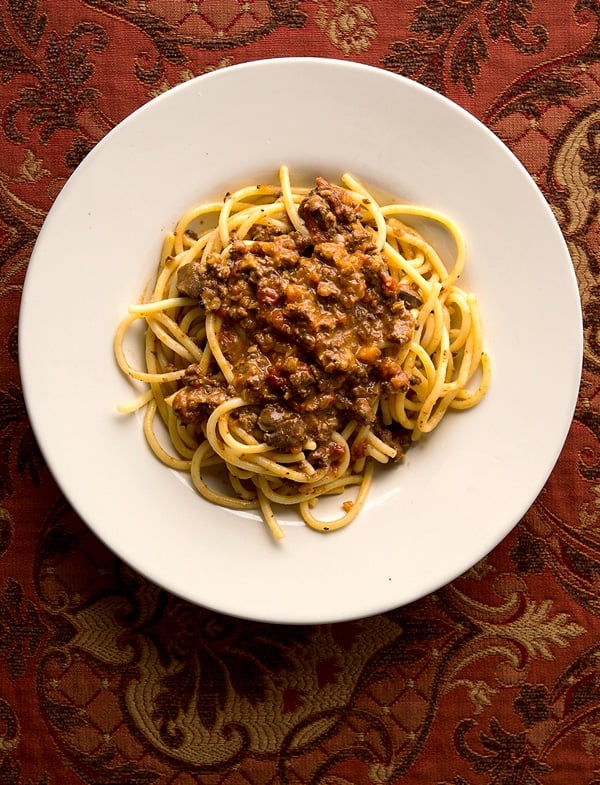
Yeah, you want to make this. Yes you do.
Now that you know how to clean gizzards, you can.

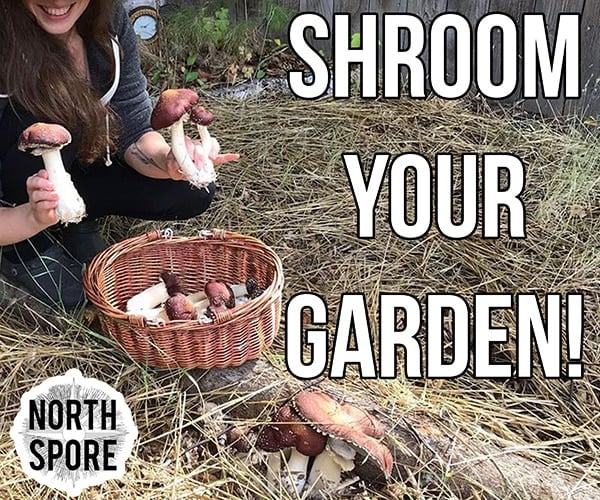
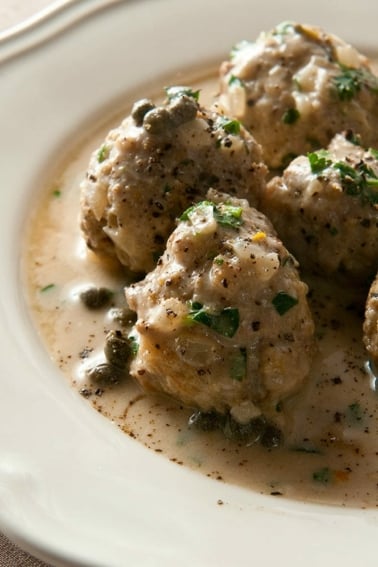
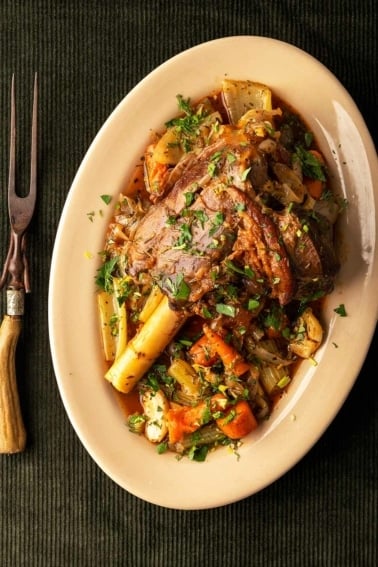
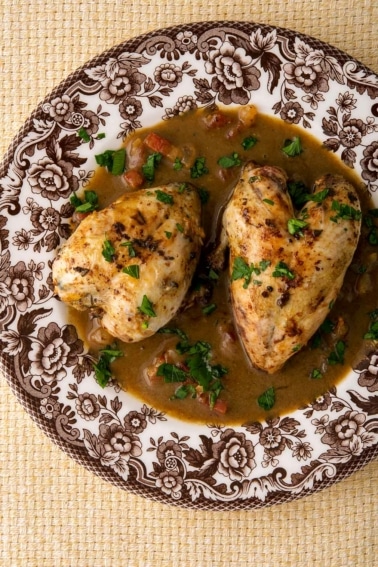
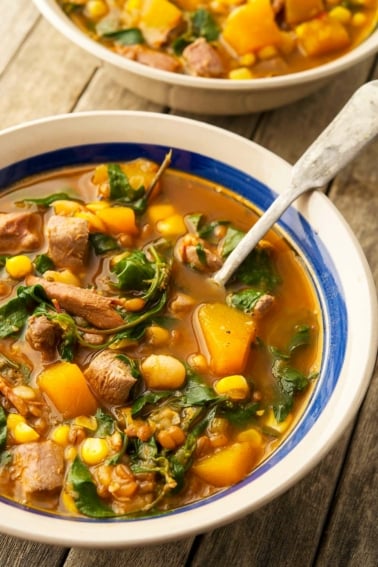
A tip I would like to share.. marinate your gizzards in buttermilk for at least 4 hours but preferably overnight. This will help to make them tender as well.. don’t ask me how it works, I just know it does..
I will certainly try this method with my gobbler this spring. Was cleaning turkey gizzard at my buddies place last spring aft a successful morning. He asked what the heck I was doing. This from a guy who grew up in the mountains eating wild meat and no telling how many grouse over his lifetime. I like ‘‘em sautéed or fried. Best innard there is. Often treat my dog with liver n heart, but I get the gizzard.
I was out at slow cook, wait for it… not really, but I do love…I mean true love – fried duckgooseturkeychickendeerhalibut gizzards, I have teeth, I like to chew and I like delicious. I have a buddy at a rich mans lease that saves them for me…and the occasional wood duck or teal, lol.
Well if you want tender gizzards in less than an hour, I have found my Instapot produces the best gizzards I’ve ever put in my mouth. A cup of liquid, duck broth sounds delish, but for those of us who don’t have access, chicken broth will do. Set the timer for 25 min, let the pressure drop naturally and you’ve cooked up lip smacking goodness in the time it takes to savor a nice craft beer.
Hannah: Awesome! Thanks for that tip.
Fried gizzards are the best!!! I first fry in oil, take them out, let them drain, then finish in my air fryer for tender finish! Finish with a drizzle of honey hot sauce and OMG. Heaven.
Now I know how stunned you must have felt when she taught you that. Pretty proud of my skills but have been doing this “wrong” for decades. Thank you!
Have you posted an updated video of your new way? It looked like the videos up on YT are your old technique.
I like gizzards and will definitely use this technique, but I got stuck on that well used/loved knife. Most places showing up on The Google are out of stock – got one left to try, but would take a suggestion for sourcing Pallares Solsona products.
I learned 60+ yrs ago from my dad, that coot have a huge gizzard & it’s the best part of them.
Thanks for the cleaning tip, Hank!!
Impressive, I love gizzards but not the tough connective tissue. I’m going to try your method at the next opportunity. Yum.